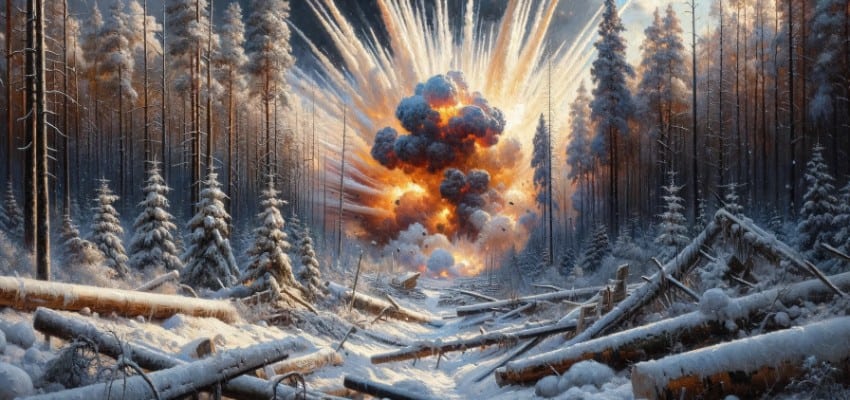Source Note: One of the most accurate and detailed sources for ongoing updates on the Ukraine crisis is the Russian Offensive Campaign Assessment from the Institute for the Study of War. The Institute for the Study of War (ISW) is a 501(c)(3) organization and produces strictly non-partisan, non-ideological, fact-based research. ISW seeks to promote an informed understanding of war and military affairs through comprehensive, independent, and accessible open-source research and analysis. ISW’s research is made available to the general public, military practitioners, policymakers, and media members. Providing a daily synthesis of key events related to the Russian aggression against Ukraine, ISW updates may benefit investigators and litigators as they follow the business, information technology, and legal trends and trajectories impacted by and stemming from the current Russo-Ukrainian conflict.
For those seeking to grasp the full scope of this evolving landscape, the complete updates from the Institute for the Study of War serve as an invaluable resource.
Content Assessment: Artillery Shortages and Strategic Goals: Ukraine's Battle for Survival
Information - 91%
Insight - 88%
Relevance - 90%
Objectivity - 94%
Authority - 95%
92%
Excellent
A short percentage-based assessment of the qualitative benefit expressed as a percentage of positive reception of the recent synthesis of reporting from the Institute for the Study of War on the Russo-Ukrainian War.
Russo-Ukrainian Conflict Update*
Artillery Shortages and Strategic Goals: Ukraine’s Battle for Survival (February 9, 2024)
ComplexDiscovery Staff
The intricate mosaic of the Russo-Ukrainian conflict, as observed in the developments on February 9, 2024, illustrates a complex battleground where military strategy, diplomatic negotiations, and information warfare converge, painting a multifaceted picture of modern warfare. The narrative woven by Russian President Vladimir Putin in his recent interview with American media personality Tucker Carlson served as a vivid testament to Russia’s persistent efforts to shape Western perceptions, relying on a well-trodden path of Kremlin narratives about the invasion. This strategic choice to reiterate longstanding positions rather than introduce new arguments underscores a calculated attempt to penetrate Western media discourse, aiming to sow informational discord and bolster Russian geopolitical standing without directly engaging with Russian domestic concerns.
The discussion around the delayed Western aid to Ukraine adds another layer of complexity to the conflict’s dynamics, highlighting the logistical and operational challenges faced by Ukrainian forces. The exacerbation of Ukraine’s artillery shortages amid these delays poses a critical threat to the nation’s defensive capabilities and underscores the precarious nature of international support mechanisms. This logistical bottleneck not only risks creating significant operational gaps but also raises alarming questions about the sustainability of Ukraine’s resistance in the face of a relentless Russian military onslaught. The strategic implications of these shortages are profound, potentially altering the course of the conflict and affecting the broader security architecture of the Eastern European region.
Amid these challenges, the leadership and strategic vision of newly appointed Ukrainian Commander-in-Chief Colonel General Oleksandr Syrskyi emerge as beacons of resilience and adaptation. Syrskyi’s emphasis on clear operational planning, rapid materiel distribution, and the integration of technological innovations signifies a holistic approach to warfare, blending traditional military tactics with modern technological advancements. This strategy not only aims to counterbalance Russian numerical superiority but also to cultivate a more agile and technologically adept fighting force capable of responding to the multifarious challenges posed by the modern battlefield.
The reported Ukrainian drone strikes against oil refineries in Krasnodar Krai exemplify the asymmetric warfare tactics employed by Ukraine to disrupt Russian logistical and economic support structures. These operations, while limited in scale, demonstrate Ukraine’s ability to project power beyond its borders and target critical infrastructure, thereby contributing to a strategy aimed at undermining Russia’s war-sustaining capabilities. Such tactics reflect a broader trend in contemporary conflicts, where non-traditional warfare methods become instrumental in challenging more formidable adversaries.
The use of illegal chemical weapons by Russian forces marks a disturbing escalation in the conflict, violating international conventions and norms. This development not only highlights the humanitarian toll of the conflict but also underscores the lengths to which parties are willing to go in pursuit of their strategic objectives. The international community’s response to these violations will be a critical test of the effectiveness and integrity of global arms control and non-proliferation regimes.
In the face of these military and strategic challenges, Ukraine’s consideration of economic reforms to secure International Monetary Fund (IMF) funding represents a crucial aspect of the nation’s broader strategy for sustaining its defense efforts. Amid potential delays in US Congressional aid, these reforms signal Ukraine’s commitment to financial stability and resilience, underscoring the interconnected nature of economic policy and national security in the context of prolonged conflict.
As the Russo-Ukrainian conflict unfolds, it continues to be characterized by a complex interplay of strategic military operations, diplomatic engagements, and informational tactics. The landscape of this conflict, shaped by the actions of both Russian and Ukrainian forces, reflects the evolving nature of modern warfare, where battles are fought not only on the ground but also in the realms of media, technology, and international diplomacy. The persistence of both sides in pursuing their respective objectives, amidst the intricate web of global support, opposition, and neutral stances, underscores the multifaceted and protracted nature of this conflict. The implications of these developments extend far beyond the immediate region, affecting global security, international law, and the future of state sovereignty in the face of aggression.
News Sources
- Institute for the Study of War (understandingwar.org)
- Echoes of the Past: Modern Mobilization and the Shadow of Soviet Strategy (February 2, 2024)
As a leading source for cybersecurity, information governance, and legal discovery insights, including international investigations and litigation, ComplexDiscovery OÜ recognizes the importance of awareness regarding alleged and documented criminal acts, particularly in the context of the Russia-Ukraine conflict. While we, following the lead of the Institute for the Study of War (ISW), do not provide detailed coverage of war crimes in our primary reports, we encourage professionals within the eDiscovery ecosystem to stay informed about these activities. This awareness is crucial for understanding potential future legal actions and responsibilities.
Detailed Reporting with Maps for February 9, 2024, from the ISW – Mouseover to Scroll
2024-02-09-PDF-Russian Offensive Campaign AssessmentReview the Detailed Reporting and Maps PDF
About the Institute for the Study of War Research Methodology
ISW’s research methodology relies on both primary and secondary sources, enabling researchers to develop a comprehensive understanding of the situation on the ground. In order to analyze military and political developments in any given area, ISW’s research analysts must wholly understand the systems of enemy and friendly forces. They must also understand the population demographics, physical terrain, politics, and history of that area. This lays the analytical foundation for understanding the reasons for particular developments and fulfilling their assigned research objectives. ISW analysts also spend time in places like Iraq, Afghanistan, and elsewhere in order to gain a better understanding of the security and political situation and to evaluate the implementation of current strategies and policies. Our researchers compile data and analyze trends, producing a granular analysis of developments in areas of research, producing an accurate, high-resolution, timely, and thorough picture of the situation. ISW’s research methodology guarantees its success and commitment to improving the nation’s ability to execute military operations, achieve strategic objectives, and respond to emerging problems that may require the use of American military power.
About the Institute for the Study of War
The Institute for the Study of War advances an informed understanding of military affairs through reliable research, trusted analysis, and innovative education. We are committed to improving the nation’s ability to execute military operations and respond to emerging threats in order to achieve U.S. strategic objectives. ISW is a non-partisan, non-profit, public policy research organization.
Learn more, get involved, and contribute today.
Additional Reading
- From Dissent to OSINT? Understanding, Influencing, and Protecting Roles, Reputation, and Revenue
- [Annual Update] International Cyber Law in Practice: Interactive Toolkit
- Data Embassies: Sovereignty, Security, and Continuity for Nation-States
Assisted by GAI and LLM Technologies
* Sourced and shared with direct express permission from the Institute for the Study of War (ISW).
Source: ComplexDiscovery OÜ


























